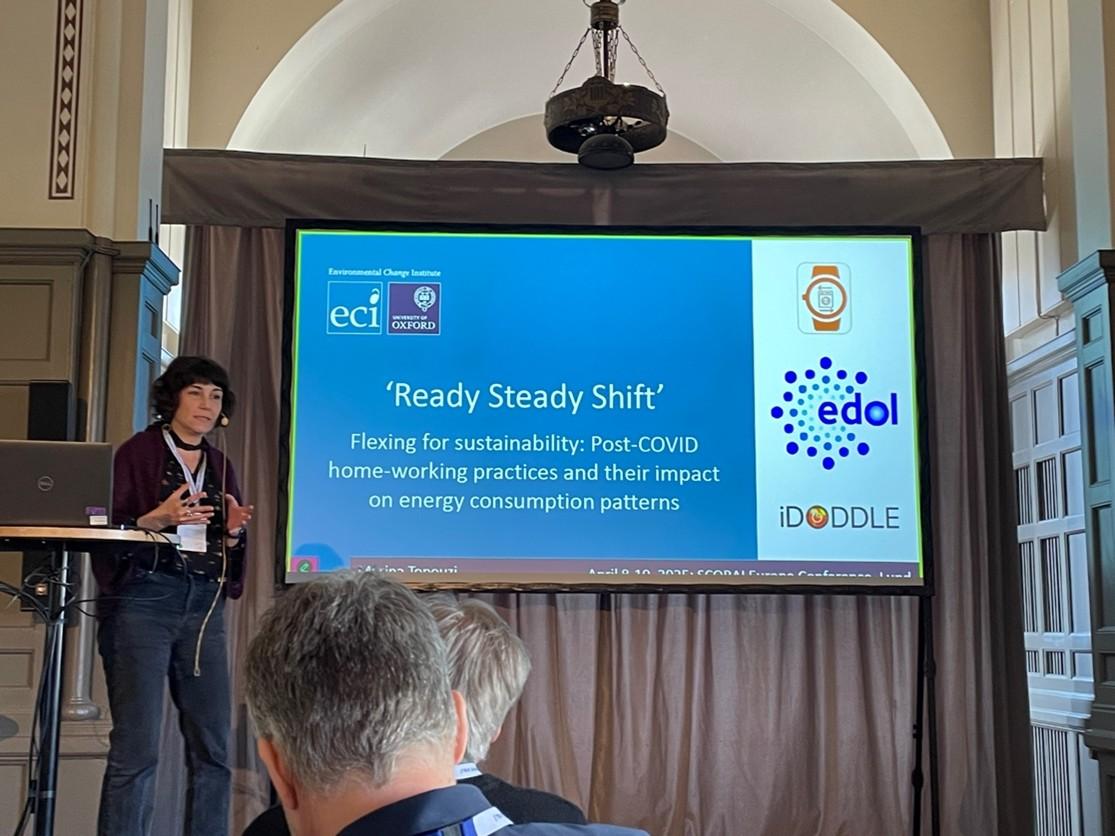As our current consumption patterns continue to deplete resources and drive pollution and waste, the need for more sustainable ways of living has never been more urgent. But could digital technologies be part of the solution? ECI postdoctoral student Felippa Amanta gives her view.
Together with Dr Emilie Vrain and Dr Marina Topouzi, both researchers at the Environmental Change Institute (ECI), I recently explored this question at the SCORAI (Sustainable Consumption Research and Action Initiative) European Union Conference in Lund, Sweden. The event focused on Mainstreaming Sustainable Consumption, and the three of us contributed insights into both the promise and perils of digital technologies across various sectors.
We were there representing the ECI’s Energy group and my contribution to the conference was a presentation on how on-demand digital services like ride-hailing, next-day delivery retail, and online food delivery are reshaping people’s expectations of delivery speed, abundance, and convenience. These digital services may be accelerating consumption in ways that threaten sustainability goals.
Dr Vrain presented on a wide range of digital technologies across retail, mobility, food, and home. Many climate-beneficial digital applications — such as peer-to-peer retail platforms, bike-sharing apps, food waste reduction tools, and smart thermostats — are powered by AI. Dr Vrain explored whether growing awareness of AI’s use of personal data might influence people’s willingness to adopt these technologies. She highlighted how concerns about data privacy could become barriers to adoption, potentially limiting their impact on promoting sustainable consumption. She also showcased a fun and interactive poster that examined how robot vacuums are changing household cleaning routines and influencing energy use.
Still related to energy in the home, Dr Topouzi presented ongoing work from the pilot ‘Ready, Steady, Shift’, part of two joint projects — EDOL and iDODDLE — exploring households’ ability to shift their domestic energy consumption while working from home. Preliminary findings from this research highlight households’ potential flexibility and willingness to shift key energy-consuming activities — such as cooking, laundry, heating, and use of miscellaneous appliances — to off-peak hours. Highlighting this kind of demand flexibility is crucial for integrating renewable energy sources and supporting the transition to a net-zero future.
Aside from its wide range of topics, SCORAI offered rich discussions not only on digital technologies and household energy practices, but also on sustainable consumption and circular economy practices—ranging from food to clothing. These sessions allowed us to gain insights from cutting-edge research and engage with the broader SCORAI community, including practitioners, on policies and strategies to mainstream sustainable consumption in various contexts.
The conference was both energising and inspiring — paving the way for ongoing dialogue, future collaborations, and stronger connections between these groups and relevant teams at ECI. If any of this resonates with your work or interests, we’d love to hear from you—please come and talk to us!
Find out more about the work of the ECI’s Energy programme.




